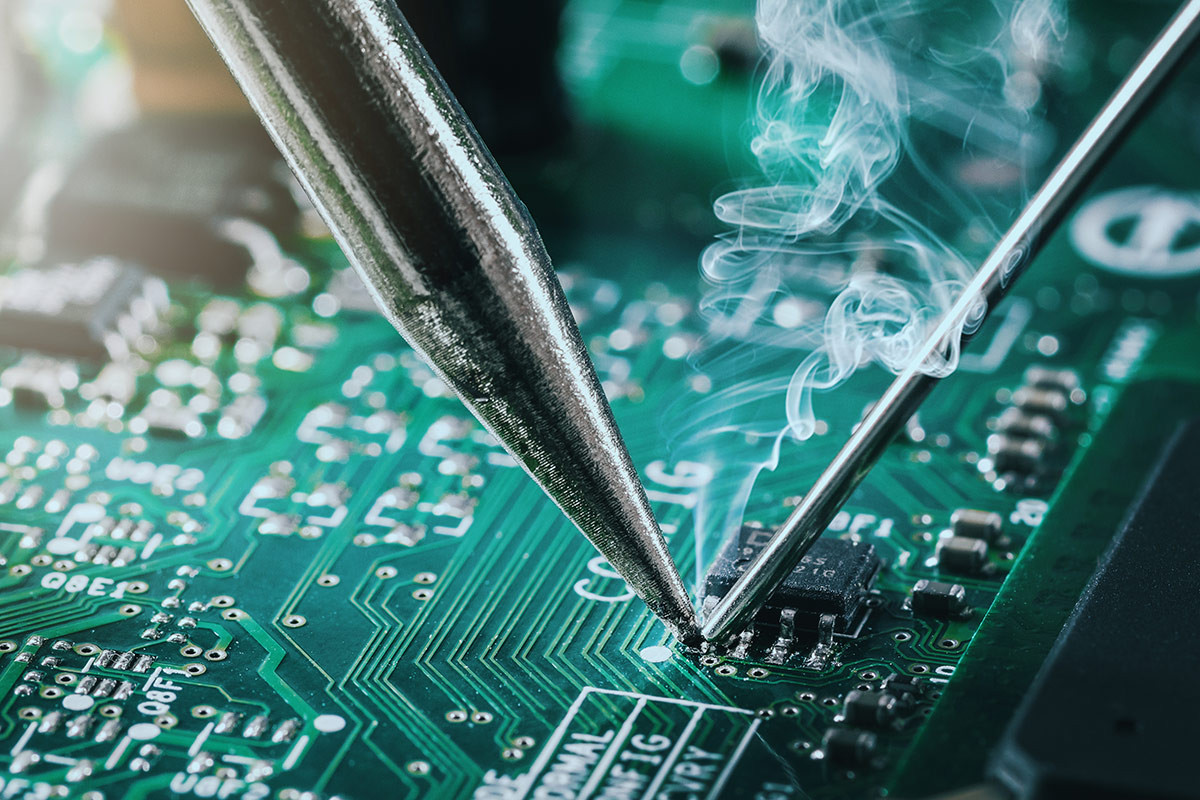
We live in an era of technological progress – and it’s easy to see the many advancements being developed every day. With all this innovation comes a vital need for robust, high-quality electronic components. High-stakes industries like aerospace, defense, and homeland security especially rely on these materials. A soldering skillset is a central tool in the production of components like these – so obtaining a soldering certification can unlock the doors to many rewarding career opportunities!
If you’re eager to begin finding new opportunities in today’s fast-paced technology fields, read on for a guide through the process of becoming a certified soldering professional.
Soldering requires a specific skill set – and the ability to work with precision, reliability, and quality is incredibly important as a soldering professional. To demonstrate these abilities, you’ll need to achieve a professional certification in soldering. Among these, IPC certification stands as a globally recognized standard of excellence.
IPC-certified individuals have trained with the skills and knowledge needed for integrity throughout the process of manufacturing. Achieving this certification can lead to more independent, self-reliant workability and higher productivity – and, for employers, providing employees with the tools and certifications to grow and learn can increase loyalty to their workplace. Overall, a successful and rewarding career path may be in store for those who pursue a soldering certification.
You might find yourself asking, “What is the IPC?” The IPC, or the Institute of Printed Circuits, is a globally respected trade association in the electronics industry. The IPC is known for its standards and certification programs, as well.
An IPC certification represents the well-earned efforts of a thoroughly trained and competent electronics professional in all aspects of soldering. This includes both design and assembly. By familiarizing yourself with industry best practices through IPC certification, you’ll be able to stay competitive and up-to-date in the workforce.
Overall, you’ll find two distinct levels of the IPC certification. Each of these is considered a portable credential awarded to the individual.
Operator—Certified IPC Application Specialist (CIS) is the first level, designed for operator level, inspection level, or any individual who requires a comprehensive understanding of the IPC standard.
The Instructor—Certified Trainer (CIT) is the second of these two levels. Upon completion of this certification, individuals are enabled to provide operator (CIS) level instruction.
Whether you are a novice in the soldering field or a professional with additional experience, you’ll be able to find both foundational and advanced skills across these two levels of IPC certification.
Although there is a significant commitment associated with the investment of becoming a certified soldering professional, the benefits are well worth your time and effort. Pursuing IPC Certification through a reputable licensed training center is key to keeping up-to-date with the increasing demand for electronics manufacturing careers. Achieving a soldering certification doesn’t simply offer practical skills – it also helps you achieve greater confidence and success throughout your career. Contact us and learn about our training and certification programs.